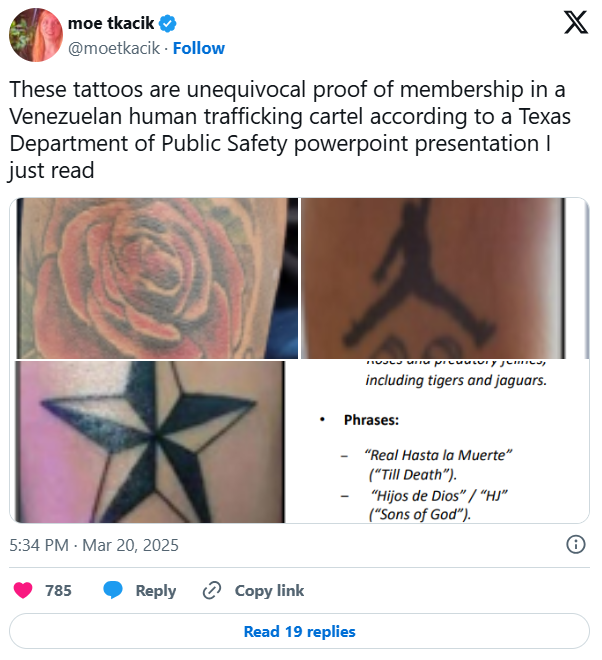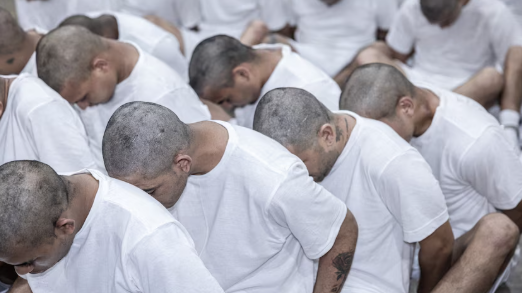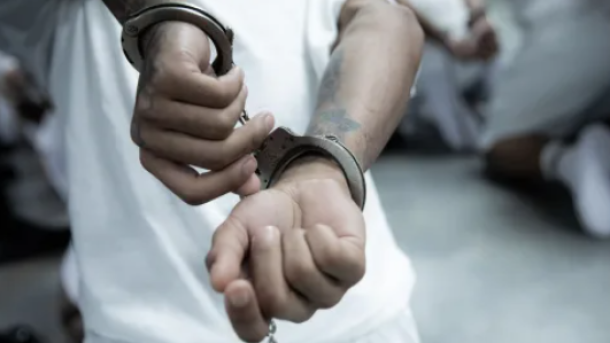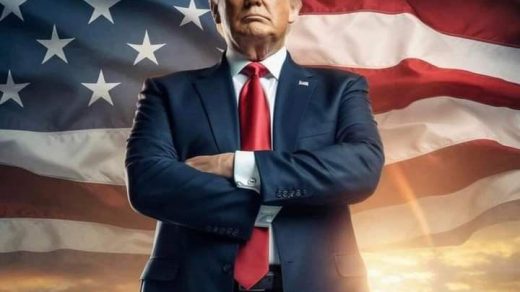US Deportation of Venezuelans has been at the center of heated debates, particularly as authorities use tattoos to identify alleged members of the Venezuelan gang Tren de Aragua (TDA). However, tattoo artists from around the world are raising concerns, pointing out that many of these tattoos have innocent and personal meanings, unrelated to any criminal affiliations.
Documents obtained by transparency organization Property of the People reveal that agencies like the Department of Homeland Security (DHS) have linked tattoos of clocks, doves, stars, and crowns to gang membership. But many of these designs were inked by artists in places like India and the UK for purely personal reasons. One British tattoo artist was stunned to see his clock-and-dove design, meant to symbolize the birth of a child, listed in a 2024 DHS report. “It honestly looks like they just grabbed random images off the internet,” he remarked.
Another tattoo under scrutiny, labeled “HJ” in the DHS documents, was created by Gujarat-based artist Vipul Chaudhary for a friend, combining the first initials of his friend’s and his wife’s names. “It’s just personal,” Chaudhary stated.
This issue has grown particularly alarming as the US Deportation of Venezuelans is now heavily influenced by such tattoos. These misidentifications have led to deportations even when individuals deny any gang ties. For instance, Neri Alvarado Borges was allegedly told by an ICE agent, “Well, you’re here because of your tattoos.” Borges had an autism awareness tattoo in honor of his brother. Similarly, Andry Jose Hernandez Romero, a makeup artist, faced deportation despite being openly gay and having no connection to any gangs.
Experts argue that relying on tattoos to determine TDA membership is misguided. Many Venezuelan gangs, they say, do not use tattoos for identification, a practice more common in Central America. Yet, these reports are still widely circulated among law enforcement and used to justify deportations.

US Deportation of Venezuelans: A Flawed Approach?
The documents, which were largely compiled under the Biden administration and circulated widely, are now being employed to justify deportations under the Trump administration‘s use of the 1798 Alien Enemies Act. The “Alien Enemies Act Validation Guide,” which assigns points for tattoos and clothing style, has drawn criticism. A person can be deported if they accumulate enough points for tattoos or certain types of clothing, even if these indicators are unrelated to gang activity.
Many of the tattoos included in the documents appear to have been sourced from Pinterest, Instagram, and tattoo blogs, showing how the US Deportation of Venezuelans has led to reliance on potentially unreliable sources. One tattoo linked to the TDA gang was actually a tribute to the rock band AC/DC, created in the UK for a person of Caucasian descent.

The Legal and Human Rights Implications of US Deportation of Venezuelans
The use of tattoos in deportation decisions is not just a matter of law enforcement; it’s a deeply concerning human rights issue. Ryan Shapiro, the head of Property of the People, described the tactic as an attempt to mask cruelty with a veneer of national security concerns. “It’s clear that this is being used to cover up nativism and cruelty as a justification for deportations,” he said.
The ACLU has already filed challenges to several deportations, arguing that these tattoos, often misunderstood and misrepresented, are being used inappropriately. “These methods of identifying gang members don’t align with best practices,” said ACLU attorney Lee Gelernt. As the US Deportation of Venezuelans continues, it is evident that tattoos alone—no matter how personal—are now playing a significant role in determining the fate of many individuals.
Source: www.inquisitr.com



